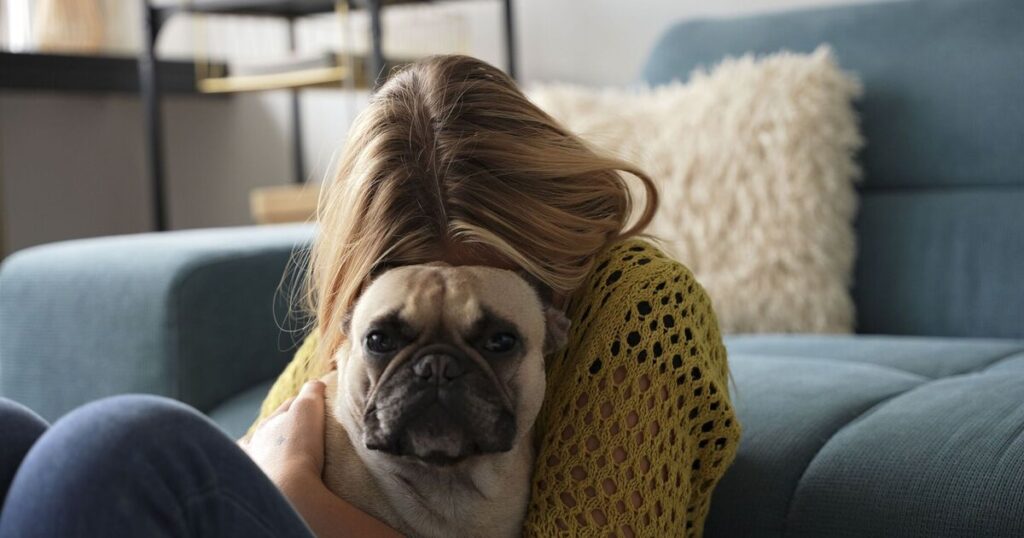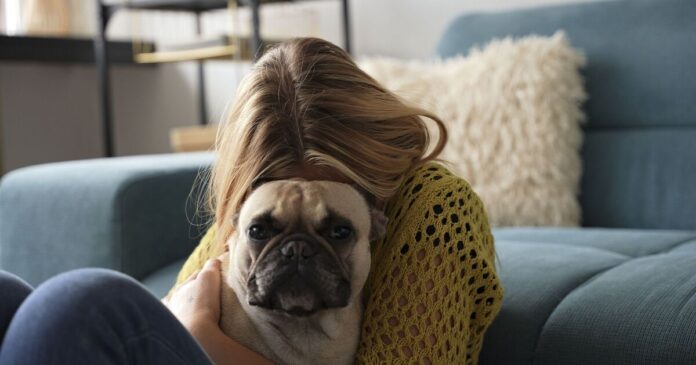
Dog owners have been apologising to their pets after discovering a common habit could be hurting their feelings.
In a viral TikTok video, user Digit and Pip shared six human behaviours that could be causing distress to your dog, making them feel unwanted or unloved.
Heartbreakingly, many owners confessed to doing these things, and have since been showering their pets with affection to make amends.
Starting with a lesser-known one, the video says: “Pushing your dog away whilst they’re giving kisses – they’re showing affection. Pushing them away could make them think you’re rejecting them.”
While everyone gets annoyed with their dog from time to time, they know shouting at them isn’t going to solve anything, but many do it anyway.
Another point adds: “Being angry at them – they don’t understand this emotion so it just teaches them to be afraid of you.”
Similarly, using the ‘come’ command to get them to do something they don’t like will only make them associate it with a “punishment command”.
Sharing the other three points, the video adds: “Taking their food/treats away whilst they’re eating just to show you can, it could teach them to become more possessive and afraid they’ll lose their food source.
“Repeatedly teasing them like blowing in their faces, poking them randomly – your dog can get confused as they don’t understand and this can cause anxiety or stress.
“Ignoring their fears – dogs can be afraid of irrational things but ignoring their fears and forcing them to go head first into a situation can cause them anxiety and they’ll start to think it’s a punishment.”
One user commented on the video: “Noooo, I blow in my dog’s face to play.”
Another added: “Brb, apologising to my dog.”
A third chimed in: “What kind of monster rejects puppy kisses?” Another said: “I can’t not reject the licking behaviour sometimes. If redirection doesn’t work I have to push him away.”
While another person shared: “My puppy was afraid of the stairs, never went up or down. One day I put her at the top and laid in the living room and waited for her to come. She did.”
According to Dr. Erin Hecht and her team on The Canine Brains Project at Harvard University, dogs do feel emotions – but not in the same way as humans.
A statement on Rover reads: “Assigning human words and root causes to these emotions isn’t always the best way to describe them.
“‘On one hand, it can be helpful to use words like ‘jealousy’ for conceptualising and relating to dogs’ feelings,’ says Dr. Julia Espinosa, a National Science Foundation postdoctoral fellow who studies how genes, the brain, and life experiences influence fear and reactivity in dogs.
“But anthropomorphising – assigning human feelings to animals – carries the risk of missing signals that more accurately explain your dog’s feelings and needs.
“A better approach involves considering your dog’s feelings on a scale of very negative to very positive.”





















